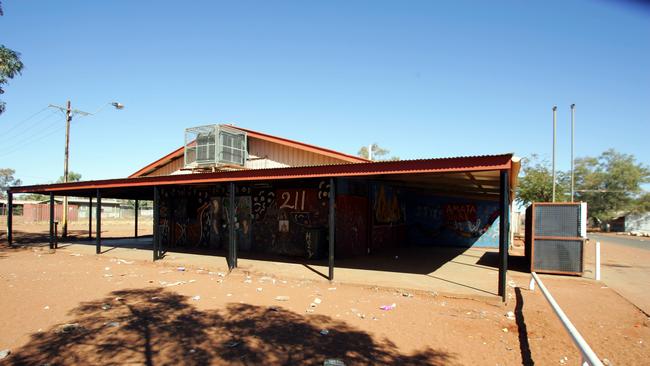APY Lands Amata and Pukatja stores fined, convicted in NT for failing for to meet reporting requirements
A court trip to the Territory has cost two South Australian Aboriginal corporations thousands – with their lawyer saying it all stems from an accountant’s ‘lip service’. Find out why.

News
Don't miss out on the headlines from News. Followed categories will be added to My News.
“Lip service” from an accountant is why two South Australian Aboriginal corporations failed to meet their reporting requirements, a court has heard, a move which has ended up costing both of them thousands.
On Tuesday in the Alice Springs Local Court, the Pukatja Supermarket and Associated Stores Aboriginal Corporation and the Amata Anangu Store Aboriginal Corporation both pleaded guilty to failing to lodge general, auditor, and financial reports as required under the 2006 Aboriginal and Torres Strait Islander Corporations Act.
The corporations manage stores in the remote South Australian Anangu Pitjantjatjara Yankunytjatjara (APY) communities of Amata and Pukatja.
Representing both Amata and Pukatja was defence lawyer Greg Griffen, who pleaded guilty on the corporations’ behalf in the matters which were dealt with together.
Reading out the charges, Prosecutor Euan Malcolm said both corporations failed to lodge the three types of required reports by the end of financial year deadline for the 2022 and 2023 financial years.
Mr Malcolm said both corporations received “10 pieces of correspondence” in the lead up to the deadline for the reports to be submitted.
“There is significant public interest in corporations submitting annual reports,” he said.

“Lodging the reports for publishing on the public registrar is the most basic form of accountability, as it allows members of the corporation to have an opportunity to hold the directors and management accountable for the corporation’s financial and general performance.”
Mr Malcolm said the reports had since been submitted to the Office of the Registrar of Indigenous Corporations.
They are yet to be uploaded to the website.
In the 2020/21 financial year, Amata generated more than $4.7 million in total income.
In the same reporting period, Pukatja generated $3.4m in total income.
Mr Griffen said neither corporation was a recipient of government funding.
He said the reason “this whole mess occurred” is because both corporations were in a contract with an accountant – which he did not name – who gave them “lip service”.
“Previous management have entered into a five-year contract with an accountant,” he said.
“Essentially, they received what was best described as lip service, and that’s me being as kind as I can.
“So they were paying a lot of money and getting absolutely nothing.”
Mr Griffen said his clients chose to wait out the contract instead of terminating it, after which they appointed a “more experienced, capable firm of accountants to guide them”.
Judge Carly Ingles said she “accepts” Mr Griffen’s version of events as “having been somebody who has lived here for close to 20 years, that is not a story that is unheard of”.
“However, that does not excuse the board from following up with those people they have engaged with and making sure that that work is done,” she said.
She fined Pukatja Supermarket and Associated Stores Aboriginal Corporation and the Amata Anangu Store Aboriginal Corporation $5000 each with a $4000 victims levy, and recorded a conviction for both corporations.
More Coverage
Originally published as APY Lands Amata and Pukatja stores fined, convicted in NT for failing for to meet reporting requirements




